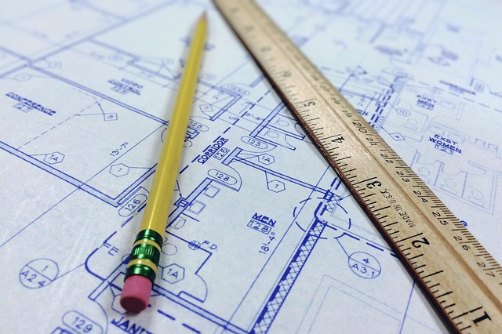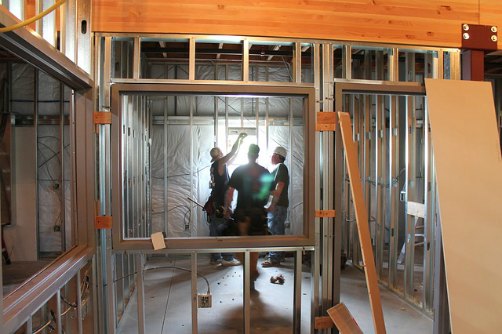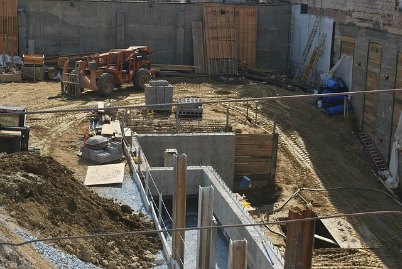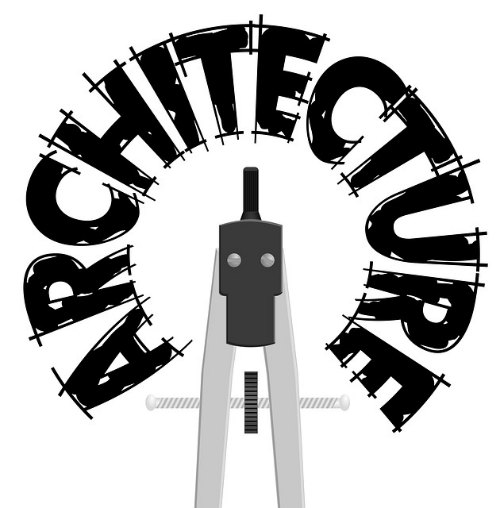“Architecture is not a business, not a career, but a crusade and a consecration to a joy that justifies the existence of the earth” ~ Henry Cameron
Rightly said, Architecture is more than a career and a job. An architect is not just an artist, scientist but an inventor, yet he appears as a cool dude next door whom everybody aspires to be. No wonder it is a good career option because the trade-offs, opportunities, and pay-offs are quite fulfilling. What’s more, at the end of the day you are creatively satisfied and happy too. Yes, you heard that right!
Image Courtesy: wokandapix via Pixabay
Let us see why you must study Architecture and choose it as ‘your’ career:
It’s not a Job, It’s a Lifestyle
Architects typically tend to think about architecture all the time, I know I do. Not just the big ‘A’ type of buildings or projects, but every little thing from every where I go. I go somewhere and start looking at materials, form, massing, lighting, etc. If I take a trip somewhere, I start by planning it around the buildings I want to visit. Probably 90% of all the books I buy (not including children’s titles) are about architecture.
Image Courtesy: Meitzke via Pixabay
Architecture Can Never Be Monotonous – The Job is constantly evolving
Architects are not just artists – we have to address building technology and programming. There are constantly evolving materials and construction methods out there and we are required as a profession to address the demands of the public at large (building performance, energy consumption, incorporating recycled materials, etc.). Architects create new design concepts that push how modern day construction is executed. Architecture is one of the few professions that is never static.
Image Source:BrooklynJohn via Pixabay
You can be your own Boss Even When You Study
Being a rookie, you can still start your own firm of one and be a viable service provider on almost any size project. You can enter contests and win commissions for major projects by yourself – I can’t think of another vocation that can provide similar latitudes. I have also seen a team of 3 people design and prepare construction documents on a mall over 1,000,000 square feet.
Image Courtesy: PublicDomainPictures via Pixabay
Artistic freedom and personal expression
As an architect, we are given certain project parameters that help guide in the direction of our projects. We are then given the freedom to pursue the artistic embodiment of those parameters. 10 architects with the same client and the same project parameters will provide 10 different solutions. Every time.
Image Courtesy: werner22brigitte via Pixabay
There are Tangible (and Sometimes Euphoric) Results
Anyone who has ever seen a building that they worked get built knows exactly what I am talking about. I am still excited to watch one of my projects getting built – it’s like having your own laboratory where you can experiment and refine things that you consider to be important and worthwhile. It ties into the artistic freedom listed in #4 but architects generally have a sense of ownership on every project they work.
We can Positively Impact Peoples’ Lives
It is rewarding to develop a personal relationship with your client, particularly when you know that the process will yield a more fruitful end product. By understanding the process, our clients appreciate the product. By appreciating the product, they are acknowledging the role it plays.
People Respect Architects
Even if they don’t really understand what we do, there is a perception that architects are ethical and responsible and will endeavor to make the right decision to our own detriment. It’s part of the reason that ‘architect’ is chosen so often as the vocation for title characters in movie and TV roles. Architects aren’t generally viewed as driven by financial rewards like doctors or as scurrilous as lawyers (can be).
Image Courtesy: geralt via Pixabay
Experimentation is expected
Despite architecture having to contain building sciences and technology, the final esoteric product does not have a definitively right or wrong answer. Because no two architects will ever come up with the exact same solution given an identical set of parameters, there is a liberating sense that you are here for the purpose of imparting your own personality on the project. We are expected to try new things, explore different materials, and incorporate emerging technologies into every project.

Longevity of Career
You can practice the profession of architecture for as long as you want – you’ll always be an architect even when it isn’t your job anymore. Most architects don’t really start to become good until later in life – I’m talking in their 50’s. I imagine that you have to come to some sort of understanding as to who you are as an individual before you can start to be consistent with imparting your imprint onto a building.
Image Courtesy: geralt via Pixabay
Incredible variety of options within the profession
Unlike other professions, you graduate with a degree in architecture without having to know what type of architecture you are going to focus on. This is really great because when you graduate, you don’t know enough about the possibilities to know what you want to do. You can float between big and little firms, the role of project architect, designer, or management. You can work on building types from different market sectors like hospitality, residential, civic, retail, etc. and will still be an architect.
Image Courtesy: hurk via Pixabay
Interestingly, Architecture today is not just restricted to designing structures and planning of cities, but has even opened new paradigms like blogging, photography, documentary.
Architecture – More About The Academic Course
Architecture Degree Course is a 5 year course after which you get a Bachelors degree in Architecture (B.Arch). The basic requirement for getting into Architecture is the ENTRANCE EXAM known as NATA (National Aptitude Test for Architecture).
“Architecture is really about well being. I think that people want to feel good in a space… On the one hand it’s about shelter, but it’s also about pleasure” -Zaha Hadid
Written By: Mohsin Sheikh, an Architect and a Training Professional
Do Not Miss Reading:
Six Interview Tips for Freshers : How to Crack Your Maiden Interview
Interview Tips For Freshers: The Importance Of Body Language and Speech











